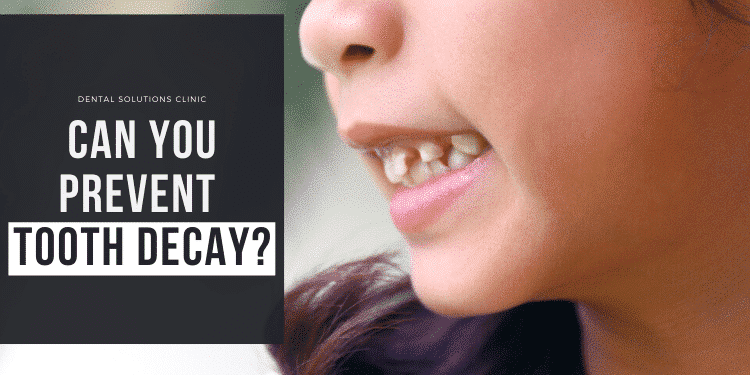- +917892951808
- Indiranagar, Bangalore
Best Dental Clinic In Bangalore Indiranagar | Best Dentist in Bangalore Indiranagar
- Home
- About Us
- Treatments
- Blog
- Contact Us
Can you prevent tooth decay?

Firstly, what is tooth decay?
Tooth decay is the destruction of the tooth – this can affect both the enamel (the outer coating of the tooth) and the dentin layer of the tooth. Tooth decay is very much common among children. It occurs when you eat foods containing sugar and starches – milk, soda, candy, etc. The bacteria that live in the mouth turns this sugar into acids and attacks the tooth enamel causing holes in the teeth called cavities. All the food debris along with bacteria and acids form plaque and cling to the teeth.
What are the symptoms of tooth decay?
Tooth decay may not cause any pain. However, if you have dental caries you might have:
- toothache – either continuous pain or occasional sharp pain without an obvious cause
- tooth sensitivity – you may feel tenderness or pain when eating or drinking something hot or cold
- bad breath
- an unpleasant taste in your mouth
- Use fluoride toothpaste to brush your teeth at least twice a day
- Floss regularly
- Use antiseptic mouthwash as they have the ingredients to help kill bacteria that cause plaque.
- Avoid carbohydrates like candy, chips and eat nutritious and balanced meals. Brush or floss soon after eating
- To protect your molars from further decay, ask your dentists for dental sealants.
- Regular dental visits are a must, for professional cleaning and dental examination.
- Quit smoking – oral tobacco poses a huge threat to the mouth, gums and teeth. It does a lot more than just staining the teeth – it can also lead to gum disease, tooth loss, and even oral cancer.
- For early-stage tooth decay – The dentist will apply a fluoride gel to protect the teeth and thereby strengthen the enamel, making teeth more resistant to the acids from plaque that can cause tooth decay. The dentist will advise you on your diet and ask you to cut down on sugary foods.
- Further, your dentist may advise a filling or a crown – this would involve the removal of the dental decay. Once done, a local anaesthetic will be administered to numb the tooth and the hole will be filled
- If tooth decay has spread to the pulp, a root canal treatment will be required and the dentist will discuss the entire procedure with you before going ahead.
- If the tooth is extremely damaged, to an extent that it cannot be restored – the tooth may need to be removed and a partial denture, tooth implant may have to be used instead.
